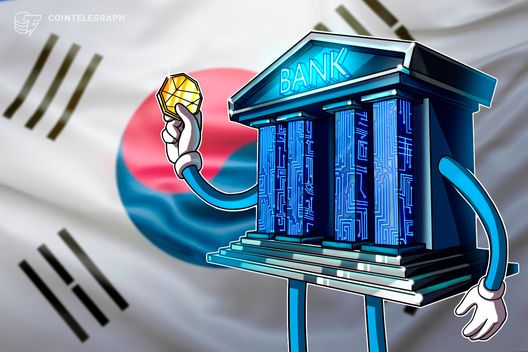

South Korea's central bank, the Bank of Korea (BOK), has indicated that it will not oppose the issuance of stablecoins pegged to the Korean won. This stance comes amid increasing discussions and regulatory developments surrounding digital assets in the country. While the BOK doesn't outright oppose won-based stablecoins, it has voiced concerns regarding potential risks to the financial system, particularly concerning foreign exchange oversight and the stability of the banking sector.
Governor Lee Chang-yong of the Bank of Korea expressed these concerns during a recent press briefing, stating that won-based stablecoins could inadvertently increase the demand for U.S. dollar-denominated stablecoins. He explained that the ease of exchanging between won and dollar stablecoins might lead to a greater reliance on the U.S. dollar in digital transactions, which could complicate the central bank's ability to manage foreign exchange movements. This is a significant issue as South Korea has capital controls in place to regulate the inflow and outflow of foreign currencies, especially the dollar.
Furthermore, the central bank is worried about the potential impact of stablecoins on South Korea's banking industry. If stablecoins become widely adopted for payments and settlements, traditional banks could see a reduction in their role in these areas, potentially affecting their profits and overall stability.
Despite these reservations, the South Korean government, under President Lee Jae Myung, remains supportive of won-pegged stablecoins as a means to prevent capital flight and modernize the country's financial system for the digital age. This divergence in views has led to calls for a more cautious and comprehensive approach to stablecoin regulation.
Recent legislative developments reflect this evolving landscape. The Democratic Party of Korea introduced the Digital Asset Innovation Growth Act, complementing the Basic Digital Asset Act. While the Financial Services Commission (FSC) maintains primary oversight of stablecoin issuers, the Bank of Korea will have a role in expressing opinions on any won stablecoin issuer, and the FSC is obligated to consider these opinions. The BOK can also request stablecoin data from issuers and request inspections from the FSC.
The new legislation also addresses the minimum capital requirements for stablecoin issuers, doubling it from 500 million won ($360,000) to 1 billion won ($720,000). Smaller issuers with less than a billion won in transactions over the past year will face lighter regulation. The legislation also clarifies that won stablecoins are neither securities nor electronic money.
These regulatory efforts reflect a broader global trend towards establishing frameworks for stablecoins. In the United States, for example, the recently passed GENIUS Act promotes dollar-pegged stablecoins. As various countries explore domestic currency stablecoins, at least in part to counter the dollarization of digital finance, South Korea's approach highlights the challenges of balancing innovation with financial stability and monetary sovereignty.